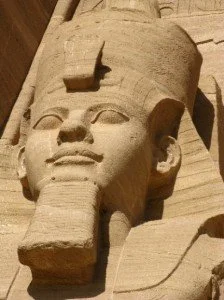Kuumba: A Guide for Our Creativity
The concept of Kuumba,
The majesty of Kemetic creative expression is unmatched by today’s standards but it is the values and concepts upheld by these expressions that set them apart from the meaningless expressions of modern culture.
creativity, means to do always as much as we can, in the way we can, in order to leave our community more beautiful and beneficial than we inherited it.
The founder of Kwanzaa, Dr. Maulana Karenga, incorporated this term as part of the seven Kwanzaa principles. In evaluating the definition of Kuumba, there are many questions that should be answered before one can begin to become creative, such as: What is the goal of the community? When this question is answered, one can begin to focus on what needs to be done in order to benefit to community.
A community needs cohesion in order to be successful at achieving a common goal. Although African Americans have similar skin color, it should not be assumed that everyone shares the same goal. Within the history of African Americans we can see how those of similar backgrounds share similar experiences, yet formulate different goals. In this regard, even today, different people expect the same community to develop towards their respective goal. One person may have a goal similar to that of Booker T. Washington which was the idea that blacks need to learn trades, accept jobs given to them by the governing class of citizens, and accept racial superiority. Another person may have a goal similar to that of W.E.B. DuBois which was the pursuit of academic excellence and political power for black citizens. Yet another person with a goal similar to Marcus Garvey who was interested in getting everyone of African ancestry together (I’m not sure what they were suppose to do). Still another person with a goal similar to that of Elijah Muhammad who focused on education and the “resurrection” of the black man and woman. And maybe another person with a goal similar to Dr. Martin Luther King Jr. who advocated integration as a form of racial equality.
Traditional education explains how the mind is only able to mimic what it has been exposed to. African Americans have only been exposed to colonialism. We were never truthfully taught about the societies in which our ancestors thrived. When trying to imagine how to fix our condition in America, we used the colonial model. Of all the people who were mentioned earlier, none of them used any other model. As all of these examples have shown, this model cannot work for us even after all of the marching, sit-ins, anger, insults, education, re-education, etc. None of these goals made our communities better. The inner city is segregated; all the schools attended by our children use information/lies gathered/stolen by Europeans from our ancestors; we are imprisoned more than any other group of people. Where does it end?
We keep going to the same store to get medicine that does not work for our wound. Even though we never see an improvement, we keep buying it because it’s convenient. In fact, we may even begin to see bacteria and puss starting to form, but we keep using the same medicine. If you do not see any improvement, the most logical response is to change the medicine. If the store in your neighborhood doesn’t carry what you need, you need to go to a different neighborhood. The store, colonialism, that is closest to us doesn’t carry the medicine we need. We need to go outside of the community, America, to a different neighborhood, Merita (Africa), to a better store, traditional society. Here is where we will find the medicine we need to help ourselves and our communities.
In order to express the principle of Kuumba, the community will need to agree on a common goal and get involved. Colonial society is the only model used as reference by African Americans, yet this model does not have a history of providing a favorable outcome. When we look at the problems within our communities, they are fostered by aspects of the colonial society; greed, violence, anger, capitalism, etc. If this is not what we want the future generations to inherit, we need to find a different model. Once we make the effort to get what we need, our communities will benefit from our actions.
Doing something to impact our community involves making changes. We are too comfortable and with comfort comes laziness, complacency, and eventually carelessness. To make our communities better, it is necessary for everyone to make a commitment and become examples. Making a change for ourselves is not easy. It’s easier to look at the leader of an organization and expect them to make a change in our community, but history has proven that this method does not work.
The changes each person makes will leave an inheritance for the next generation. As these changes begin to impact our environment we may be led to establish and support community businesses, teach our own children, build our own homes, etc. When we are able to do these things, we can truly feel a sense of community that will be beneficial for generations, and living up to the meaning of Kuumba.

